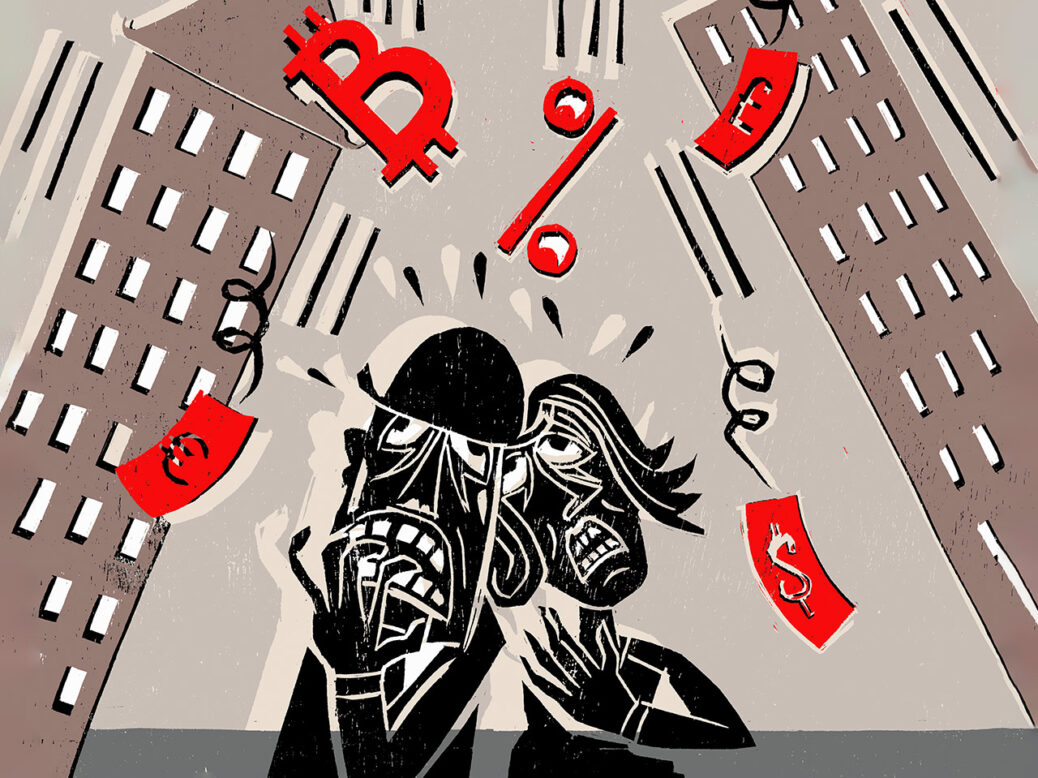
The failures of Silicon Valley and Signature banks in the US, the swallowing of Credit Suisse by UBS in Switzerland and the recent turbulence in the share price of Deutsche Bank are reminders that even if the risk of another global financial crisis is low – and in my view, it is – the regulatory reforms that were implemented after 2008 did not eliminate financial fragility.
As policymakers, banks and their customers ask what went wrong this time, and what more could be done to secure banks and financial markets, one idea is rapidly gaining traction: what if you could open a bank account with a government-owned central bank, such as the Bank of England?
Such accounts could work as either a safe haven into which people could move their money in times of stress, or a complete replacement for accounts in conventional banks. Central banks in Europe, Canada and the US are looking into offering a central bank digital currency, or CBDC, as is the Bank of England, which is investigating whether to launch a digital pound, or Britcoin. The People’s Bank of China has already rolled out a CBDC to a few hundred million of its citizens, and the Indian central bank has launched a pilot.
For consumers, a CBDC would seem a lot like a normal bank account, accessed through a website or an app. For a bank, however, operating even basic accounts is such a complicated undertaking that the central bank would almost certainly have to contract the work out to commercial banks who already have the expertise and experience. The only real difference, then, is there would be little need (or very, very little need) to panic about your bank going under and your money disappearing in a financial crisis.
[See also: Who sets our interest rates – the Bank of England or the US Federal Reserve?]
But far from fixing the problems we currently see in the banking system, CBDC accounts might make them worse.
Having an entirely safe haven in times of bank stress might actually increase the risk of bank runs, by offering depositors an obvious alternative. Any bank that lost depositors’ confidence, and therefore deposits, would (like Silicon Valley Bank) find itself quickly unable to fund outstanding loans. A CBDC could delay or limit transfers in such circumstances, but this would not be popular with account holders; at the same time as reducing the harm, you defeat the purpose of the CBDC.
What if everyone had an account at the central bank, and they replaced banks entirely – or we legislated so that banks were put out of the deposit-taking business? We’d have to figure how commercial banks funded the lending people use to buy houses and start businesses. The money has to come from somewhere.
One possibility is that the central bank would re-deposit the funds on our behalf back with the commercial banks. The government would then have to work out how to get the banks to properly manage the risks of loans they made. This would effectively be the same as the government simply guaranteeing all bank deposits outright (as the US appeared to toy with doing for a while last week). One source of risk to banks’ viability would be gone – depositors won’t run from their central bank accounts, and the central bank won’t run from the banks. But the other risks – how to make sure that commercial bank managers don’t take on too much risk or play too much golf – would remain.
If our money was not redeposited back into commercial banks by the central bank, the financial sector would either have to raise funds from somewhere else or drastically reduce its lending. Banks also fund themselves from wholesale markets by issuing bonds and shares. So, lending would not stop entirely, but it would be on a much smaller scale than before. This would radically curtail how much credit we could access, and the effects on business growth, housing and consumer spending would be very serious indeed. The government or central bank would have to step in, either by using people’s deposits with them to fund bank-lending by buying banks’ bonds or equity (again confronting how to manage the risk it would be exposed to), or by doing the lending itself.
This is a long way of saying that our problems do not end if we find an apparently safe form of deposits. The US economist Larry Summers caused hilarity when he hamfistedly tweeted that Silicon Valley Bank “committed one of the most elementary errors in banking: borrowing money in the short term and investing in the long term”. This was funny because looking after money that needs to be available all the time (“borrowing in the short term”) and lending to people who want to buy a house or a car or set up a business (“investing in the long term”) is the very essence of the banking business. Someone has to do it, or economic opportunities would be much reduced for most of us, and the risk has to be portioned out. There is no policy intervention or new technology that can make it disappear completely.
Read more:
The Bank of England is right to hold its nerve
The Bank of England has been forced into a dangerous position





